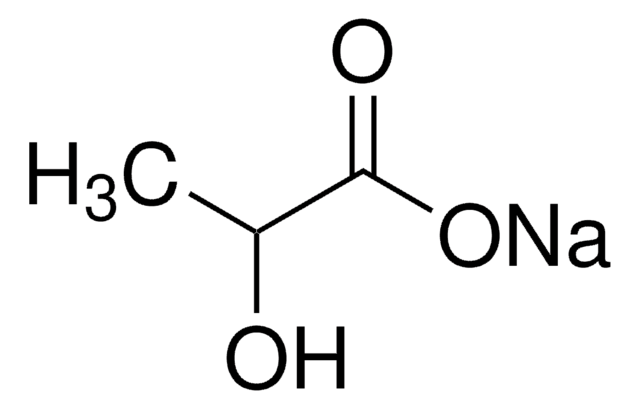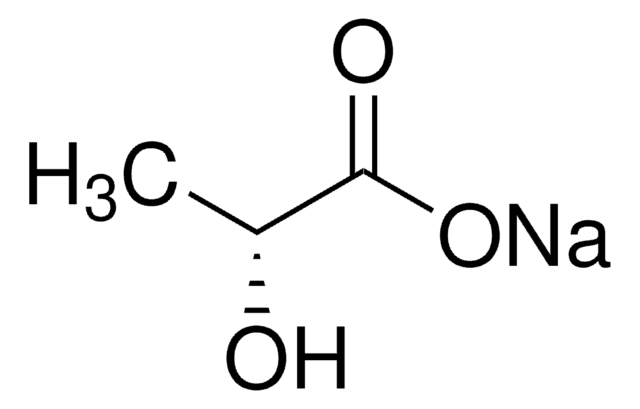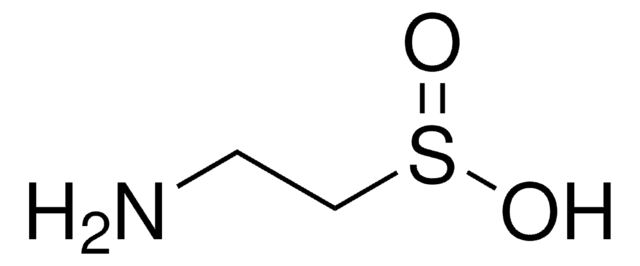L4263
Sodium DL-lactate solution
BioReagent, syrup, 60 % (w/w), synthetic, suitable for cell culture
Synonyme(s) :
DL-Lactic acid sodium salt
About This Item
Produits recommandés
Source biologique
synthetic
Niveau de qualité
Gamme de produits
BioReagent
Forme
syrup
Concentration
27-33% (enzymatic)
60 % (w/w)
Technique(s)
cell culture | mammalian: suitable
Température de stockage
2-8°C
Chaîne SMILES
[Na+].CC(O)C([O-])=O
InChI
1S/C3H6O3.Na/c1-2(4)3(5)6;/h2,4H,1H3,(H,5,6);/q;+1/p-1
Clé InChI
NGSFWBMYFKHRBD-UHFFFAOYSA-M
Vous recherchez des produits similaires ? Visite Guide de comparaison des produits
Description générale
Application
- as a component in DMEM-B to prepare Dulbecco modified Eagle medium (DMEM)-C medium to evaluate the effect of medium composition on in vitro spermatogonial stem cells (SSCs) maintenance
- as a supplement in Dulbecco′s modified Eagle′s medium-nutrient mixture F12 to obtain conditioned media of testicular macrophages
- as a component in non-capacitation medium and TALP medium for sperm preparation and in vitro fertilization
- in 4-(2-hydroxyethyl)-1-piperazineethanesulfonic acid (HEPES) buffered synthetic oviduct fluid (SOF) media for oocyte preservation
Actions biochimiques/physiologiques
Code de la classe de stockage
10 - Combustible liquids
Classe de danger pour l'eau (WGK)
WGK 1
Point d'éclair (°F)
Not applicable
Point d'éclair (°C)
Not applicable
Équipement de protection individuelle
Eyeshields, Gloves, type N95 (US)
Certificats d'analyse (COA)
Recherchez un Certificats d'analyse (COA) en saisissant le numéro de lot du produit. Les numéros de lot figurent sur l'étiquette du produit après les mots "Lot" ou "Batch".
Déjà en possession de ce produit ?
Retrouvez la documentation relative aux produits que vous avez récemment achetés dans la Bibliothèque de documents.
Les clients ont également consulté
Notre équipe de scientifiques dispose d'une expérience dans tous les secteurs de la recherche, notamment en sciences de la vie, science des matériaux, synthèse chimique, chromatographie, analyse et dans de nombreux autres domaines..
Contacter notre Service technique









